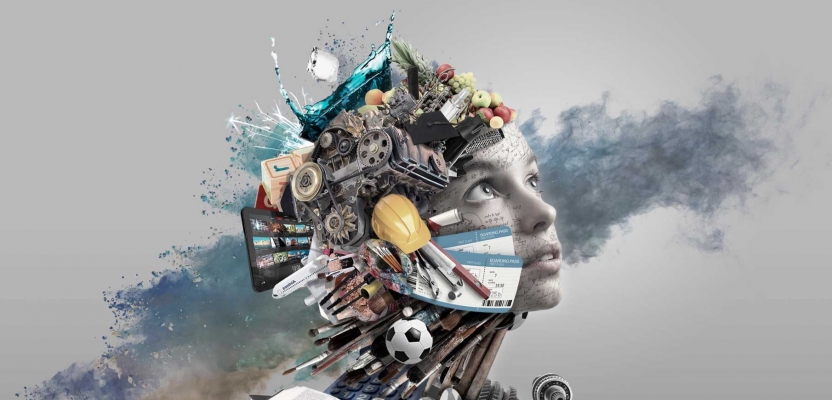Your Mindset creates your reality. Time to take control!

This year (2020) has been a year unlike any I’ve ever experienced in my many years on this planet! In Australia – the land of contrasts – we’ve had floods and drought in the back end of 2019, the Black Summer of bushfires from June last year through to now and of course a pandemic from February. Without intending to diminish the impact all of these disasters have had on people, communities, wildlife and business, there are positive outcomes as well. We’ve drawn closer and cared for each other, watching out to make sure our vulnerable people are OK. We’ve smiled more at people we don’t know. We’ve shared resources, creativity and humour. We haven’t let self-isolation or lockdown impact self-expression and the arts. People have come together online to share music, ballet, live readings of plays. My heart soars when I see how our human spirit has found ways to reach out and touch each others’ lives in love and support. There’s no doubt we’re experiencing a watershed moment. Everything we’ve held as constant is thrown up in the air for re-evaluation. We can more easily replace what’s not functioning effectively with new, creative ways of working, interacting, loving and living. Many of us have been asking soul searching questions. Am I happy? Do I find meaning and fulfillment in what’s around me at the moment? Am I spending enough time with people who are important to me? Those kinds of questions. Questions are emerging around our work choices, whether we’re doing what really lights us up, how to resolve the fair or unfair division of labour in the home. We’re questioning the role business plays in society and its responsibility to give as well as take – genuinely give, not token giving as a marketing tactic. Pre-pandemic, we saw Purpose adopted – and I use that word purposefully – into business. Now we’re seeing more conversations about Purpose needing to guide and align every aspect of business. As an inspiring purpose becomes the organising principle in business, brought alive in every decision and daily action, we’re going to see bigger changes. I believe women have a major role to play in the changing face of business. The ‘feminine’ values of ensuring wellbeing, inclusion and belonging, empathy, resilience, consultation and collaboration are finally being recognised as pathways to the more measurable business drivers. Research has shown that more women at senior levels significantly impacts bottom line, Return on Investment and Return on Equity as examples. For more women to step up, we need to deeply understand the value we bring, to let go of perfection, to recognise opportunities and feel confident to go for them. It all starts with mindset. And mindset accounts for 85% of our success in any endeavor. We may have an exciting vision, aligned goals, the willingness to put in lots of hard work and to persist in the face of challenges. Which is positive, right? But it’s not enough. If your mindset doesn’t support you, you will not achieve the vision in the same way that you could if your mindset was there 100% behind you. To help more women and those with a naturally feminine approach to take advantage of this watershed moment, I put together a series of seven videos. One will be released each week. Today, the first video takes a look at mindset and why it’s so powerful. Subsequent videos explore how we create our mindset, identifying whether our mindset supports us or not, exploring how we can change our mindset if it is not 100% behind us, how we can embed those changes and integrate them back into the workplace or any other life context. Mindset consists of the values, beliefs and attitudes we hold, formed as a result of our life experiences and the way that we’ve interpreted the reality around us. Once a mindset pattern is triggered by an external situation, it drives our behaviour, and therefore the outcomes that we achieve. In the process of creating our mindset, we essentially eliminate most of what we’re exposed to. Typically, our mindset is unconscious and we’re unaware of the process that created it. Two things arise from that position. We think we understand what reality is when, in truth, we haven’t a clue what’s going on. It’s important to recognize that we don’t see reality as it really is because nobody can. And I’ll explain that in the second video. We think that our mindset is concrete. It’s set in stone. We can’t change it. We now know how powerful our mindset is and how a change in understanding can alter our bodies, improve our performance and set us up for success or failure. My first experience of the power of Mindset was reading ‘The Inner Game of Tennis’ (1974) in my advertising days. The book was about the mental side of peak performance and essentially proposed that the game was won or lost before the players ever got onto the court. Since then, there has been so much scientific research and literature supporting the power of our mind. Norman Doidge talks of ‘The Brain that Changes itself’ introducing the concept of neuroplasticity where in the face of brain damage, peoples’ brains rewired functionality to operate as a whole brain replacing the damaged parts. Bruce Lipton shares the “The Biology of Belief’. He talks of the relatively new field of epigenetic where scientists are now ratifying the power of our interpretation of the external world – based on our beliefs – to impact our health and wellbeing. In her TEDx presentation “Change your Mindset, Change the Game”, Dr. Alia Crum discussed a personal experience of the power of mindset and 3 scientific studies demonstrating that power: The increased pain relief after thoracic surgery when a doctor delivered the morphine instead of the timed release via computer. The decrease in body weight, body fat and increase in energy and wellbeing experienced amongst the test group of hotel room attendants simply as a result of being told they were experiencing the daily requirement of exercise to
When is a decision REALLY a decision?

It seemed like such a good idea at the time. Efficient and relatively easy! Just hop on the train at Milsons Point Station, change at Central and up the escalator to the domestic check-in. I missed the first train from Milsons Point which meant I could miss my connection and possibly my plane. Changing trains at Central, I took a short-cut to reach a different platform, got lost and wound up running up the stairs, suitcase in hand. 3 steps from the top I could see the train was about to leave. I screamed for the conductor to wait for me. With an extra burst of speed I reached the platform. The conductor ignored me. The doors were beginning to close. I threw my suitcase into the space between the closing doors. The audience of almost a dozen fellow travellers started at me as I fell into the carriage. “I couldn’t miss my plane!” I made it! In conversation with a friend later that day, I realised I had experienced an unwavering decision: I was going to get on that train. There was no question in my mind! No second-guessing. No concern about what others might think of me. No fear of rejection. I was totally in the moment and failure was not an option. I then recognised the difference between that decision and some I had made in other areas of my life. I thought I was committed. I wasn’t. There was still some lingering doubt about whether I wanted the outcome or thought I deserved the outcome. What did it take for me to make and carry through such a ‘do or die’ decision? A whole-brain decision – including my intuition. I thin-sliced the situation and decided in a split second that I could achieve my outcome The consequences of not succeeding were something I wasn’t prepared to live with The possibility of failure was not an option I had a clear plan of action I had complete trust in my ability to carry through the plan And I was determined to make it happen Everything came together in the split second I made the decision. It reminds me of the well-known riddle:Question: In a bacon-and-egg breakfast, what’s the difference between the Chicken and the Pig?Answer: The Chicken is involved, but the Pig is committed! We use the word ‘decision’ lightly. The question is, have we really decided? Have we really come to a resolution? Now I recall what that total commitment to a decision feels like, I have the opportunity to evaluate other decisions I thought I had made to see how they measure up. What about you? Do you have 100% commitment to your important decisions? Your results will let you know.
